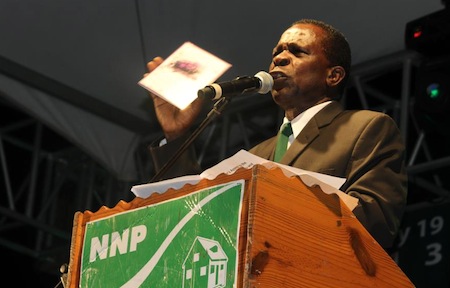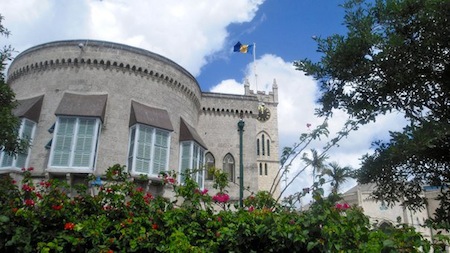I wrote on Monday that Grenada’s New National Party (NNP) was likely to win today’s parliamentary election — and won it they have, taking all 15 of the seats in Grenada’s lower house of parliament, the House of Representatives.![]()
That means that Keith Mitchell, who previously served as prime minister from 1995 to 2008, will return to head Grenada’s government with a slightly more center-right administration, although it remains unclear whether the NNP or the NDC can unilaterally pull Grenada into better economic times when the entire Caribbean region remains economically depressed.
Not to say that the Caribbean region has ever exactly been an engine of economic growth beyond tourism revenue, and that’s of course highly dependent on the global economy.
The last time that one party swept all 15 seats was in 1999, when, once again, Mitchell was leading the NNP.
Not only will Tillman Thomas, the current prime minister and leader of the National Democratic Congress (NDC) lose power, he will lose his constituency, and the NDC will now be entirely unrepresented in the House of Representatives through the next five years.
Thomas’s government was seen as somewhat lackluster and passive in the face of unemployment and economic malaise on an island where tourism is the key industry, and his party was beset with numerous defections and infighting heading into Tuesday’s vote. Thomas’s former foreign minister Karl Hood even endorsed the NNP, and a former NDC environment minister Glynis Roberts formed a new center-left alternative, the National United Front to challenge for three constituencies on Tuesday.
Unemployment is running between 30% and 40% on the island of around 110,000 residents.
The Caribbean Development Bank has identified Grenada as one of seven Caribbean economies with unsustainable debt levels.
Among the other seven is Barbados, which holds parliamentary elections on Thursday — and prime minister Freundel Stuart’s Democratic Labour Party (DLP) faces a stiff challenge as well from a former three-term prime minister, Owen Arthur, and the opposition Barbados Labour Party (BLP).
The BLP is not as strongly favored to win Thursday’s elections as the NNP was favored to win today’s Grenadian elections, but the result from St. George’s should give Arthur and the BLP some amount of comfort — and likewise, it won’t be an easy 48 hours for Stuart’s drive for reelection.
Photo credit to WEE FM’s Mikey Hutchinson.

